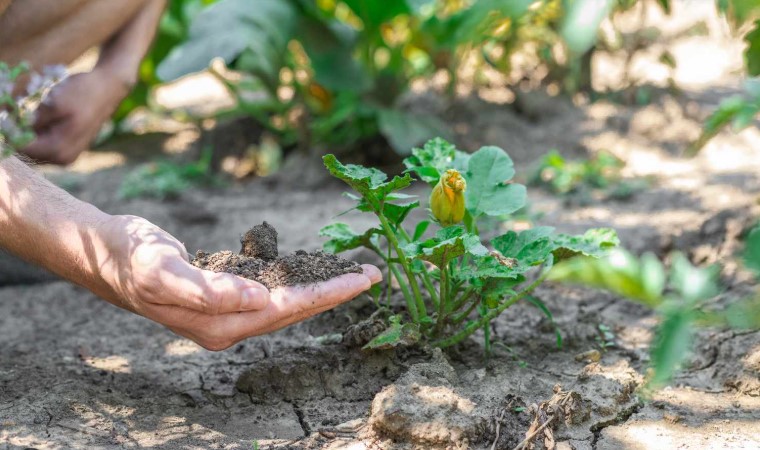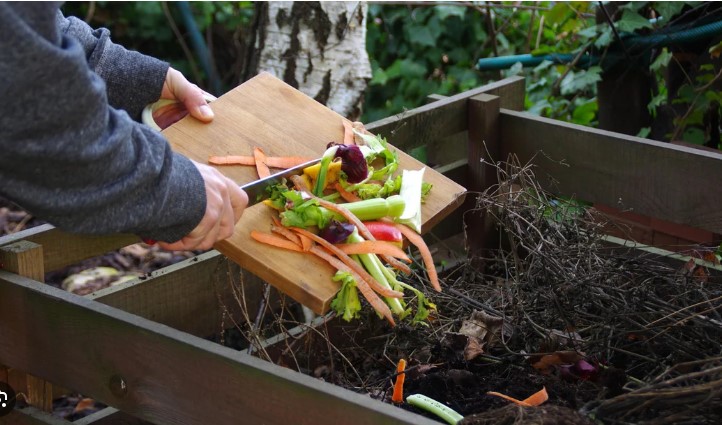Composting offers several advantages for urban gardeners. In cities, space is limited, and waste management can be challenging. Composting allows urban gardeners to reduce waste while enriching their soil. This practice not only helps create a healthier garden but also contributes to sustainability. In this article, we will explore how composting benefits urban gardeners.

Reduces Waste Sent to Landfills
Urban areas produce large amounts of waste, much of which ends up in landfills. Organic waste, such as food scraps, yard trimmings, and leaves, contributes significantly to landfill waste. By composting these materials, urban gardeners can reduce the amount of waste that goes to landfills.
When organic waste decomposes in landfills, it produces harmful methane gas, a potent greenhouse gas. Composting, however, allows organic materials to break down aerobically (with oxygen), preventing methane production. This simple step reduces the environmental impact of waste disposal while helping create valuable compost.
Enhances Soil Quality
Urban soil can be poor and compacted due to construction, heavy foot traffic, and pollution. Compost improves soil structure, making it more fertile and better at retaining moisture. It also increases the soil’s ability to drain, reducing the risk of waterlogging.
Adding compost to the soil replenishes essential nutrients like nitrogen, phosphorus, and potassium. These nutrients promote healthy plant growth, improve root development, and increase crop yield in urban gardens. Healthy soil also encourages beneficial microorganisms and earthworms, which further support plant health.
Saves Money on Fertilizers
One of the main costs for urban gardeners is purchasing fertilizers and soil amendments. Composting reduces the need for store-bought fertilizers. By making compost at home, gardeners can create their own nutrient-rich soil amendments for free.
Compost improves soil fertility naturally, eliminating the need for synthetic fertilizers. It is a cost-effective and environmentally friendly alternative. Over time, urban gardeners can save money by using homemade compost instead of purchasing commercial fertilizers.
Reduces the Need for Chemical Pesticides
Urban gardens are often exposed to pollution and pests, which can harm plants. Compost helps reduce the need for chemical pesticides by promoting healthy, resilient plants. Healthy plants are less susceptible to pests and diseases, which means gardeners can rely less on harmful chemicals.
Compost also encourages a thriving ecosystem of beneficial insects, such as ladybugs and bees, which can help control pest populations. By creating a balanced and natural environment in the garden, composting reduces the need for harmful chemical interventions.
Urban gardeners are constantly seeking sustainable practices to enrich their small plots. Composting transforms kitchen scraps into nutrient-dense soil, a core topic explored in our post on the Benefits of Composting for Urban Gardeners.
This method reduces waste and creates a thriving ecosystem for plants. For those interested in other forms of resource management, exploring a bestaubettingsites can offer different perspectives on optimization and value.
Starting a compost bin is simpler than many think and yields incredible results for your urban oasis.
Improves Water Retention
In urban environments, water scarcity can be a concern, especially during hot summer months. Compost enhances the soil’s ability to retain water. This is particularly important for urban gardeners with limited access to water sources. By adding compost to the soil, gardeners can reduce the need for frequent watering.
Compost retains moisture in the soil, allowing plants to thrive even during dry periods. It acts as a sponge, holding water and releasing it slowly to plant roots. This reduces water waste and helps urban gardeners maintain healthy plants with less water.
Promotes Sustainable Gardening Practices
Composting aligns perfectly with sustainable gardening. Urban gardeners who compost contribute to reducing waste, conserving resources, and minimizing environmental impact. Composting closes the loop on organic waste by turning it into a valuable resource for the garden.
In addition to reducing waste and promoting healthy soil, composting helps lower a garden’s carbon footprint. By relying on compost instead of synthetic fertilizers, gardeners can reduce their dependence on chemical products that require energy-intensive production. Composting is a low-energy, environmentally friendly practice that supports a sustainable lifestyle.
Conclusion
Composting offers numerous benefits for urban gardeners. It reduces waste, improves soil quality, saves money on fertilizers, and promotes sustainable gardening practices. Composting also supports urban food security and reduces the need for chemical pesticides.


8kBetApp is the next thing on my list! Seems easy to use which is exactly what I’m looking for. Download it here: 8kbetapp
I don’t think the title of your article matches the content lol. Just kidding, mainly because I had some doubts after reading the article.
Triangagame, new to me! The site looks interesting. Anyone know what kind of games they offer? Give it a try and tell me! Get started at: triangagame
Alright, heard about 389win1 and decided to take a look. Not bad, seems legit. The interface is clean and easy to use. Gonna throw a few bucks in and see if I can hit a win. Link is here in case you wanna join me: 389win1
Thanks for sharing. I read many of your blog posts, cool, your blog is very good.
Your point of view caught my eye and was very interesting. Thanks. I have a question for you. https://www.binance.info/vi/register?ref=MFN0EVO1